Use this guide to help you determine if you are experiencing the symptoms of selenium deficiency, to help you get started with safe supplementation, and how to correctly dose your supplementation.
Un-diagnosed selenium deficiency may be part of the reason you aren’t feeling well or may be experiencing difficult to diagnose symptoms.
It turns out that Selenium is very important for thyroid function and it’s something that many people are NOT getting enough of in their diets.
How important is this nutrient?
For starters:
It’s involved in the creation of one of the most powerful anti-oxidants in your body, it’s also involved in the conversion process of T4 to T3 which helps your thyroid function.
Because of the importance of this nutrient I’ve created a guide to help you determine if you may be experiencing the early warning signs of deficiency.
I’m going to give you all the information you need to know about Selenium Deficiency including:
- Early warning signs of selenium deficiency
- Why selenium is so important for Thyroid Function
- How to supplement with selenium safely and how to avoid toxicity with this mineral
- How to get selenium from natural food sources
- And other mineral deficiencies that often co-exist with selenium deficiency
So let’s dive in…
Are you suffering from Selenium Deficiency?
Here is where things get a little bit tricky.
Selenium deficiency doesn’t necessarily cause symptoms of deficiency, BUT there are some signs that you can look out for (which we will go over below).
Selenium is required for the proper function of certain proteins in the body (known as selenoproteins (1)).
And when Selenium is low or deficient in the body these proteins don’t function the way they are supposed to.
Sound pretty simple right?
So if we know which processes these proteins are responsible for, we can easily find out what happens in the body when they don’t work well!
It turns out that these selenoproteins are involved in some VERY important functions in the body including:
- Activation glutathione peroxidase enzymes (Glutathione is the MASTER antioxidant (2) in the body)
- Activation of Iodothyronine deiodinases (Fancy name for the enzymes involved in the T4 to T3 conversion process – VERY important for thyroid patients!)
- Activation of Thioredoxin reductase (3) (Enzymes involved in energy production and metabolism)
- And other processes in the body that we will go over as well…
I’m sorry for using those terms that no one can pronounce or understand, so let’s put it into human terms:
Selenium is involved in producing POWERFUL antioxidants in the body, it helps your body create the ACTIVE thyroid hormone and it is involved in regulating your metabolism.
So…
While a deficiency in Selenium may not necessarily cause overt symptoms (unless it is VERY severe (4)), it makes the body more likely to develop certain diseases and conditions (5).
Let’s talk about some of these conditions so you know if you may be suffering from Selenium Deficiency:
8 Early Symptoms of Selenium Deficiency:
Believe it or not but profound selenium deficiency is actually quite rare.
Instead, we have a more sinister type of deficiency that exists with other nutrients in addition to selenium and this type of deficiency is more of a sub-optimal type.
This is really important because of how Doctors evaluate deficiencies in patients.
In most cases, a deficiency in a mineral or nutrient is black and white, meaning you either have it or you don’t.
But does this make sense?
We know that before you develop frank deficiency that you were first slightly deficient and before that, you had just enough to notice your symptoms and so on.
This means that deficiency exists on a spectrum and it doesn’t really fit into the black or white diagnostic guidelines that Doctors tend to follow.
So what does this mean for you?
It means that many patients may be walking around with what I call sub-optimal levels of various nutrients and these sub-optimal levels can cause symptoms that reduce quality of life but that are not life-threatening.
And it is these symptoms that may cause you to look for help in supplementing!
So with that in mind let’s dive into the early signs and symptoms of selenium deficiency that may be reducing your quality of life:
#1. Hair Loss or Changes to Hair Quality and Texture
Are you experiencing slight changes to your hair?
Perhaps your hair isn’t growing as much as it once was, or perhaps you find that you are losing more when you wash your hair or comb your hair.
Some individuals may even notice that their hair isn’t quite as luxurious as it once was meaning it is losing its shine or luster.
All of these symptoms may be related to your micronutrient status including selenium levels.
Don’t get me wrong:
I’m not saying that all hair loss is caused by Selenium deficiency (in fact this isn’t even remotely true), but what I am saying is that if traditional hair regrowth therapies have NOT worked for you then it may be time to look into selenium deficiency.
Among scientists the cause of these changes to hair quality and texture are not well understood:
It’s unclear if these changes are related to Selenium’s effects on thyroid function or other direct effects on hair follicles and nail beds, however, there is an association with selenium deficiency and changes in both hair (6) and nails (7).
In addition, replacing low Selenium levels has been shown to improve hair growth and nail growth.
Another very important point worth mentioning (and one that we will expand on below) is that selenium deficiency rarely tends to appear by itself and is often accompanied by other nutrient deficiencies.
This is important because other micronutrients such as iron, zinc, biotin, and selenium (8) are all required for proper hair growth.
The moral of the story?
If you do have unexplained hair loss or brittle nails I recommend further investigation and at a minimum looking into the following micronutrients: Iron, zinc, selenium, and biotin.
All of these micronutrients have been associated with changes to both hair and nails.
In addition, make sure to get a full thyroid work-up.
#2. Thyroid Dysfunction
Probably one of the most profound effects of selenium deficiency is the effect that it has on your thyroid.
If you aren’t aware of the importance of thyroid function in the body then I would recommend you check out this post.
Your thyroid produces very powerful hormones (T3 and T4) which help to regulate almost every major hormone system in the body.
Your thyroid also helps regulate your metabolism (and therefore your weight), the number of calories you burn at rest, your body temperature, your energy levels and so on.
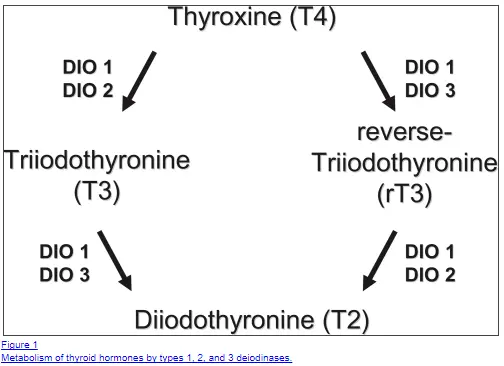
Basically, anything that influences thyroid hormone in a negative way will absolutely be felt by the patient.
You may also notice that many of the symptoms of selenium deficiency track closely with the symptoms of hypothyroidism and this isn’t by coincidence.
Selenium deficiency has been shown to directly impair thyroid hormone production from the thyroid gland and it may reduce the peripheral conversion of T4 thyroid hormone into the active T3 thyroid hormone (9).
It may be entirely possible that the symptoms of selenium deficiency may actually be mediated through their effects on your thyroid.
Remember those other nutrients we talked about above? Iron, Selenium, and Zinc?
They are ALSO required for proper thyroid function and the deficiency of these nutrients (which tend to track with selenium) may also be part of the problem.
Moral of the story?
If you experience any of the symptoms of selenium deficiency it would also be prudent to evaluate thyroid function in your body with a complete thyroid lab panel.
#3. Weakened Immune System (Susceptibility to colds and autoimmune disease)
Does it feel like you get every cold, virus or bug that you come into contact with?
A weakened immune system from Selenium Deficiency (10) may be the culprit.
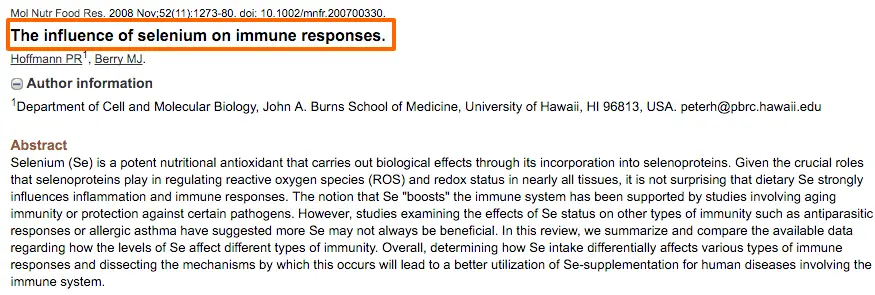
Selenium, through its effects as an antioxidant, is required for optimal immune function in the body.
Beyond its direct effects on inflammation, selenium is also a critical part of a family of enzymes known as selenoenzymes or selenoproteins.
One such example is glutathione peroxidase which requires selenium as a building block to function.
Glutathione peroxidase is the enzyme that helps your body produce glutathione which you may know as the master anti-oxidant.
We know that supplementing with Selenium has been shown to improve immune function in certain individuals (11).
It may be through its incorporation into these specific enzymes that selenium supplementation helps promote immune function.
In addition, it has been shown that supplementing with selenium daily for 3 months may help reduce TPO antibodies in patients who have the autoimmune disease Hashimoto’s thyroiditis (12):
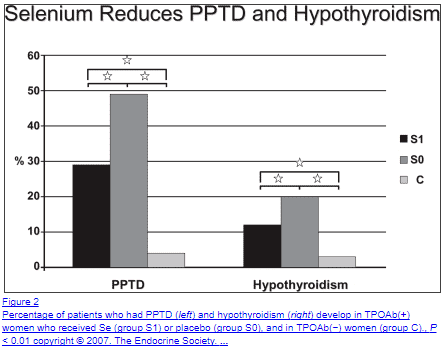
The moral of the story?
When these enzymes are not working properly (due to selenium deficiency) your body will be unable to fight off bacterial and/or viral infections… leaving you susceptible to colds and potentially to certain autoimmune diseases.
Supplementing with selenium may, therefore, be a viable option to improve immune function in certain patients.
#4. Fatigue
Fatigue is one of those very non-specific but very important symptoms that many patients suffer from on a daily basis.
It may, therefore, come as no surprise that certain micronutrient deficiencies such as Zinc, Selenium, and Magnesium can all contribute to this symptom.
Does this mean if you are suffering from fatigue that it’s because of your selenium levels?
Maybe, but probably not.
Instead, there are certain populations of patients that tend to be more susceptible to developing selenium-induced fatigue.
These patients all tend to have issues with intestinal absorption of these nutrients in the GI tract such as those who suffer from gastrointestinal issues (IBD and IBS (13)).
Certain patients have shown an increase in energy (or a reduction in fatigue) with daily selenium supplementation (14).
The exact mechanism for why selenium may be associated with fatigue is not well understood but it’s worth considering if you have concurrent GI-related issues along with fatigue.
Selenium supplementation has also been shown to increase energy levels in patients with cancer (15).
#5. Low Serum Thyroid Lab tests
This is a big one for any patient with Hypothyroidism or Hashimoto’s.
Low levels of selenium may be responsible for the reduced function of the medication that you are currently taking.
This is primarily because selenium is required for optimal T4 to T3 conversion in the peripheral tissues (16), and without enough Selenium, some things happen in the body that most Doctors will miss:
As T4 to T3 conversion is reduced your free T4 Levels begin to rise and your free T3 levels begin to fall.

To untrained doctors who don’t order free T3 levels (which by the way is almost every doctor), it looks like your thyroid is “normal” or even “high”.
Meanwhile, you’re more symptomatic than ever because you don’t have the ACTIVE thyroid hormone metabolite!
Do you see why this is a problem?
In addition, Selenium deficiency may make Iodine deficiency worse or create an environment where iodine deficiency can happen more quickly.
Not something you want to have happened.
If you are reading this article and you aren’t aware of what the thyroid does, or the symptoms of hypothyroidism please read this article here for more information.
#6. Elevated Serum Iron
This may not be a symptom so much as a finding that you may come across during routine lab work.
Selenium deficiency has been shown to alter iron levels (17) (we know that it can cause low iron) but it can also lead to elevated iron studies in the serum or just dysregulation of iron in the body.
#7. Other Mineral Deficiencies (Magnesium, Calcium, Iron, Copper, and Zinc)
Suboptimal selenium levels may also cause or exacerbate minor nutrient deficiencies in several key minerals in the body (18).
These minerals include magnesium, calcium, iron, and even zinc.
All of these nutrients are involved in various biochemical reactions in the body and the deficiency of each one may present with different symptoms from that of low selenium levels.
The point here is to make sure that if you suspect that you have selenium deficiency to also replete other minerals and nutrients at the same time.
It may be as easy as taking a multivitamin that contains other trace minerals and nutrients but it should at least be considered.
You can read more about multivitamins here.
#8. Muscle Pain
Are you struggling with muscle pain or weakness of the muscles?
What about an elevation in muscle enzymes in the serum otherwise known as creatine kinase?
These symptoms have all been associated with selenium deficiency.
The cause of these symptoms seems to be related to the influence that selenium has on mitochondrial function within muscle tissue (19).
If selenium is deficient then mitochondrial energy production may be limited in skeletal tissues which may then present with pain.

But what’s more interesting is that not all patients with selenium deficiency present with muscle weakness and muscle pain.
It’s not clear why this is but it may be related to other cofactors that you may be dealing with such as chronic illness, chronic viral infections, and so forth.
Patients who fit into these categories seem to experience muscle pain with a higher frequency than those without them.
The good news?
If your muscle pain is caused by selenium deficiency then supplementing with selenium should help reduce your symptoms in as little as 4 weeks.
How to Treat and Reverse Selenium Deficiency
So now the question is:
If you think you may have Selenium deficiency what are you going to do about it?
The first step is to determine if Selenium supplementation is right for you…
Not everyone will necessarily benefit from taking Selenium and taking Selenium for a prolonged period of time does have some side effects (20).
So here’s what I recommend:
If you fall into any of the following categories then supplementing with Selenium would likely be worth a shot:
- You’ve been eating the Standard American Diet for years (AKA you are likely suffering from micronutrient deficiencies)
- You have 1 or more of the symptoms listed above
- You feel that your immune system is weakened
- You have Hashimoto’s Thyroiditis
- You are on Thyroid medication and it isn’t effective or you aren’t getting symptomatic relief
In these cases, I believe that supplementing with Selenium is worth trying for at least a couple of months.
I recommend starting with 200mcg per day of selenomethionine.
I recommend selenomethionine due to its high bioavailability (21).
If you prefer a more natural approach you can also opt to try and get Selenium from selenium-rich sources in your diet (which we will go over below).
Just remember not to exceed 400mcg per day.
I also don’t recommend supplementing with Selenium indefinitely. Give it a try for several months in an attempt to REPLETE micronutrient tissue levels.
Once you’ve repleted your tissues and changed your diet, you may be able to cut back on your supplements.
The body can store some selenium in skeletal muscle but you still may find that you need to get it consistently through your diet and through supplements.
This is especially true in cases of poor absorption in patients who have conditions like inflammatory bowel disease, IBS, untreated celiac disease, etc.
Selenium Toxicity and Side Effects of Selenium Supplementation
Can you get too much selenium?
The answer is yes! So you want to be careful when supplementing.
The good news is that it takes A LOT of selenium to become toxic, so unless you are consuming massive quantities of selenium you should be fine.
As long as you stick to the guidelines below you shouldn’t have any issues taking too much selenium.
Your daily dose should never exceed 400mcg per day and a good starting point is 200mcg per day.
Notice the MCG behind the number which indicates the dose is in MICROgrams and not milligrams or grams.
Toxic symptoms tend to occur with rapid ingestion over a short period of time.
Studies have shown that these symptoms may appear within 30-35 days after supplementation in individuals who consume up to 1 GRAM in that time frame (22).
To put this into perspective remember that 1 gram is equal to 1000 milligrams and 1 milligram is equal to 1000mcg.
With a daily dose of 200-400mcg per day, you should only consume around 12,000mcg or 12 milligrams each month – which is MUCH lower than the 1 gram cited above.
But remember:
Each person may present differently when supplementing with selenium so it’s still important to watch out for side effects that may suggest you are getting too much for your body.
Side effects of too much selenium include:
- Rapid increase in hair loss and/or alopecia
- Damage to fingernails
- Gastrointestinal symptoms such as nausea or change in bowel movements
- Memory difficulties such as brain fog or difficulty with concentration
The presence of these symptoms may indicate that you are taking too much selenium from your body.
In most cases, these symptoms start about 1 week after starting selenium and completely resolve within 4-5 weeks after cessation of the supplement.
You can avoid all of these symptoms by using only high-quality selenium supplements which contain no more than 200-400mcg per serving.
Some studies (23) also show that selenium toxicity can occur through exposure to the environment as well.
Selenium and Hashimoto’s Thyroiditis
Selenium supplementation can be used as a potential therapy for patients with the autoimmune disease Hashimoto’s thyroiditis.
This disease results in autoimmune and self-inflicted damage to the thyroid gland which is mediated by the immune system.
Over time this disease may result in permanent and complete damage to the thyroid gland leaving patients reliant upon thyroid hormone replacement for life.
We’ve discussed the importance of selenium in proper thyroid function and also proper immune function and this disease represents a breakdown of both.
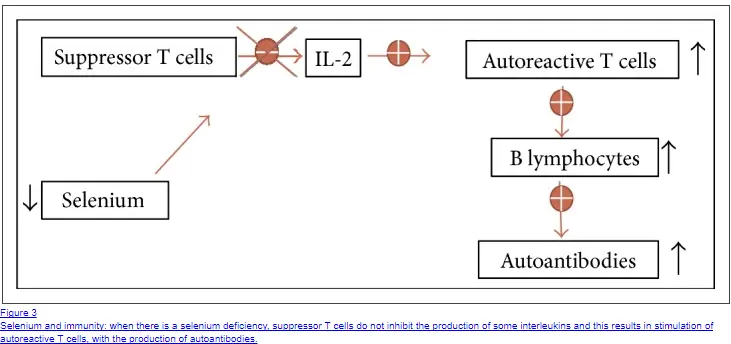
Selenium is important for patients with thyroid disease because serum levels of this nutrient display a U-shaped relationship with Hashimoto’s thyroiditis (24).
This means that a deficiency may lead to worsening autoimmunity and thyroid damage over time, but it also means that excess supplementation may lead to damage as well.
This may explain why some studies show that selenium supplementation has been shown to reduce TPO antibodies (25), while others suggest that it may be harmful.
Perhaps a better way of looking at the situation is to suggest that only certain individuals take selenium supplements if they have Hashimoto’s while other patients may want to actively avoid excess selenium from food sources and supplements.
If you have the thyroid disease Hashimoto’s thyroiditis, especially if you take various nutrients or supplements, it would be prudent to consider these factors before blindly supplementing.
A better approach may be to use Selenium only as a trial for 4-8 weeks with TPO antibody lab testing before supplementation and after to determine if it’s actually helping.
If you see a reduction in total antibodies in the serum then continuing supplementation may be a good idea.
If you experience negative symptoms, no change, or a worsening of your symptoms then it may be worth avoiding excess selenium from food sources and supplements (more information on which foods contain high selenium is below).
If you suffer from thyroid disease (including Hashimoto’s) and you want to trial supplementation then I would recommend a supplement such as this which also contains zinc and other nutrients known to improve thyroid function.
Iodine and Selenium
It’s also worth pointing out that taking Iodine in the presence of LOW levels of selenium may actually increase your risk of thyroid tissue damage (26).
This seems to occur in part due to low levels of glutathione and your body’s inability to reduce oxidative damage.
I bring this up because many people with Hypothyroidism and Hashimoto’s are supplementing with Iodine.
In some cases, this may be actually worsening thyroid function.
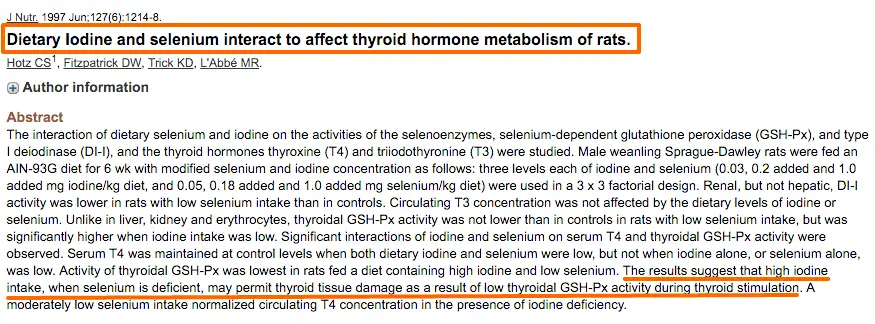
For this reason, I recommend supplementing with Selenium if you are also using Iodine. This is especially true if you have Hashimoto’s.
A better solution may be to aim for natural sources of Iodine and Selenium from food sources.
Natural Food Sources of Selenium
If you are concerned with supplementing or you have tried supplementing in the past and have had side effects, then I recommend eating foods high in Selenium.
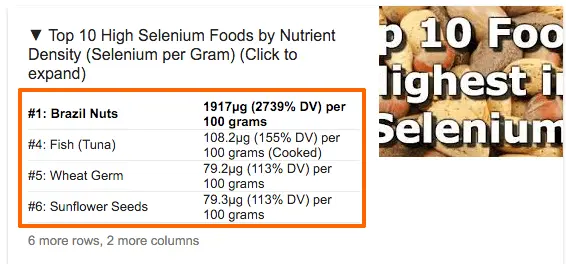
The highest food source of Selenium is Brazil Nuts.
You can eat as few as 1 to 2 Brazil nuts per day and still boost whole–body selenium levels (27) AND boost immune function.
Other foods to focus on include:
- Mushrooms
- Cod
- Shrimp
- Halibut
- Salmon
- Chicken
- Eggs
- Turkey
- Tuna
The bottom line:
You’ve got options when it comes to getting Selenium into your body.
My preference is always for natural food sources because they contain other essential nutrients that likely play a role in the absorption and activation of micronutrients.
Having said that, I also understand that it isn’t always possible.
In these cases, it’s a good idea to trial supplementation.
What to expect when Supplementing with Selenium
Let’s get one thing straight.
There is no magical pill or magical supplement that is going to make you feel 100% better.
If you’ve been searching for such a thing, I would advise you to stop right now.
I can say this after successfully treating hundreds and hundreds of thyroid patients.
In order to get better, you need a combination of therapies that blend together well and create an environment where the body can function optimally.
Selenium may help you do that, but it’s not likely to be this magical supplement that reduces all of your symptoms.
In reality, you should be taking only the supplements that your body needs because you are deficient in those things. Or because supraphysiologic (meaning higher than normal) doses of a certain supplement may give you a benefit.
When it comes to Selenium it is no different.
That is why I recommend that you take a combination of other micronutrients that work synergistically with one another.
That way you are MUCH more likely to notice a benefit.
If you do take Selenium in isolation, then I would recommend you monitor the following lab values:
- Free T3 levels – These should increase on selenium.
- Free T4 levels – This should reduce or stay the same as your body actively converts T4 into the active free T3.
- Reverse T3 – This may reduce when taking selenium, but not always.
- Antithyroglobulin and thyroid peroxidase antibodies – These may decrease while taking selenium, but not always.
- RBC Selenium – This should increase as you take supplements, if it does not you are likely not absorbing.
And of course, monitor your symptoms.
If it is working for you then your hypothyroid symptoms should improve.
Other supplements to help Boost Thyroid Function
In order to get the maximum benefit from taking Selenium (especially if you suffer from Hypothyroidism) I recommend that you get evaluated for the following deficiencies as well:
Zinc
This micronutrient is also involved in the T4 to T3 conversion process and zinc deficiency is VERY common. In combination with Selenium, it may improve thyroid function, improve immunity and reduce inflammation.
I recommend using Zinc bound to picolinic acid because it has superior absorption (28) over other forms of zinc.
Iron
*Please note that I don’t recommend using iron UNLESS your iron levels are suboptimal. You can read more about how to evaluate your iron stores here.
Iron deficiency is made worse with coexisting selenium deficiency (29).
For that reason, if you suspect you have Selenium deficiency I would also recommend testing yourself for iron deficiency.
But don’t just take iron for the sake of taking it!
Too much iron in the body is toxic.
Instead, get your Iron levels checked and replace your levels accordingly. Just realize that these two nutrients are linked in terms of how they act in the body.
And it’s also important to note that in hypothyroid states, your body isn’t able to absorb Iron very well – increasing your risk of developing iron deficiency.
If you have hypothyroidism and have tested your labs, then consider supplementing with liquid iron.
Monitor your ferritin, TIBC, and serum iron levels if you are taking this supplement.
Iodine
We’ve already gone into detail about how Iodine and Selenium interact with thyroid function in the body.
But I also want to point out that if you choose to supplement with Iodine, I do recommend using Selenium at the same time.
This may help to blunt damage that can occur while taking iodine in isolation.
I recommend starting out at a small dose of Iodine (325mcg should do the trick) and slowly increasing every 5-7 days until you reach 1-3mg per day.
If you notice worsening symptoms stop using the iodine and recheck your labs.
Wrapping it up
Selenium deficiency is very common and can be difficult to diagnose if you aren’t looking for it.
Because supplementing with Selenium isn’t always straightforward, I recommend starting with selenium-rich sources in your diet (30).
If this isn’t possible, or you feel that you have absorption issues, then adding higher doses of selenium with supplementation may be necessary.
Also, remember that every system in the body is connected!
For that reason, I also recommend that if you feel you have a selenium deficiency you get evaluated for other common micronutrient deficiencies including iodine deficiency, zinc deficiency, and iron deficiency.
If you are deficient in these nutrients consider supplementing with them in addition to Selenium for maximum effect.
Now it’s your turn:
Have you been supplementing with Selenium?
Has it helped to improve your thyroid function?
Have you noticed an improvement in your symptoms while taking it?
Leave a comment below!
Scientific References
#1. http://www.ncbi.nlm.nih.gov/pubmed/24987004
#2. http://www.ncbi.nlm.nih.gov/pmc/articles/PMC2821140/
#3. https://www.ncbi.nlm.nih.gov/pmc/articles/PMC1220815/
#4. http://www.ncbi.nlm.nih.gov/pmc/articles/PMC1255217/
#5. http://www.ncbi.nlm.nih.gov/pubmed/18384097
#6. http://www.ncbi.nlm.nih.gov/pubmed/20823774
#7. http://www.ncbi.nlm.nih.gov/pubmed/6401914
#8. http://www.ncbi.nlm.nih.gov/pubmed/20823774
#9. https://www.ncbi.nlm.nih.gov/pubmed/12487769
#10. https://www.ncbi.nlm.nih.gov/pubmed/12487769
#11. http://ajcn.nutrition.org/content/80/1/154.full
#12. https://www.ncbi.nlm.nih.gov/pmc/articles/PMC2721352/
#13. https://www.ncbi.nlm.nih.gov/pmc/articles/PMC5531543/
#14. https://www.ncbi.nlm.nih.gov/pubmed/25379637
#15. https://www.ncbi.nlm.nih.gov/pubmed/25379637
#16. http://www.ncbi.nlm.nih.gov/pubmed/7604216
#17. https://www.ncbi.nlm.nih.gov/pubmed/7766029
#18. https://www.ncbi.nlm.nih.gov/pubmed/7766029
#19. https://www.ncbi.nlm.nih.gov/pubmed/12766976
#20. http://www.ncbi.nlm.nih.gov/pubmed/14550763
#21. http://www.ncbi.nlm.nih.gov/pubmed/11895311
#22. https://www.ncbi.nlm.nih.gov/pubmed/22165838/
#23. https://www.ncbi.nlm.nih.gov/pubmed/8592839/
#24. https://www.ncbi.nlm.nih.gov/pmc/articles/PMC5307254/
#25. http://online.liebertpub.com/doi/abs/10.1089/thy.2009.0351
#26. http://www.ncbi.nlm.nih.gov/pubmed/9187638
#27. http://ajcn.nutrition.org/content/87/2/379.short
#28. http://www.ncbi.nlm.nih.gov/pubmed/3630857
#29. http://www.ncbi.nlm.nih.gov/pubmed/12487769
#30. http://www.ncbi.nlm.nih.gov/pubmed/10448514
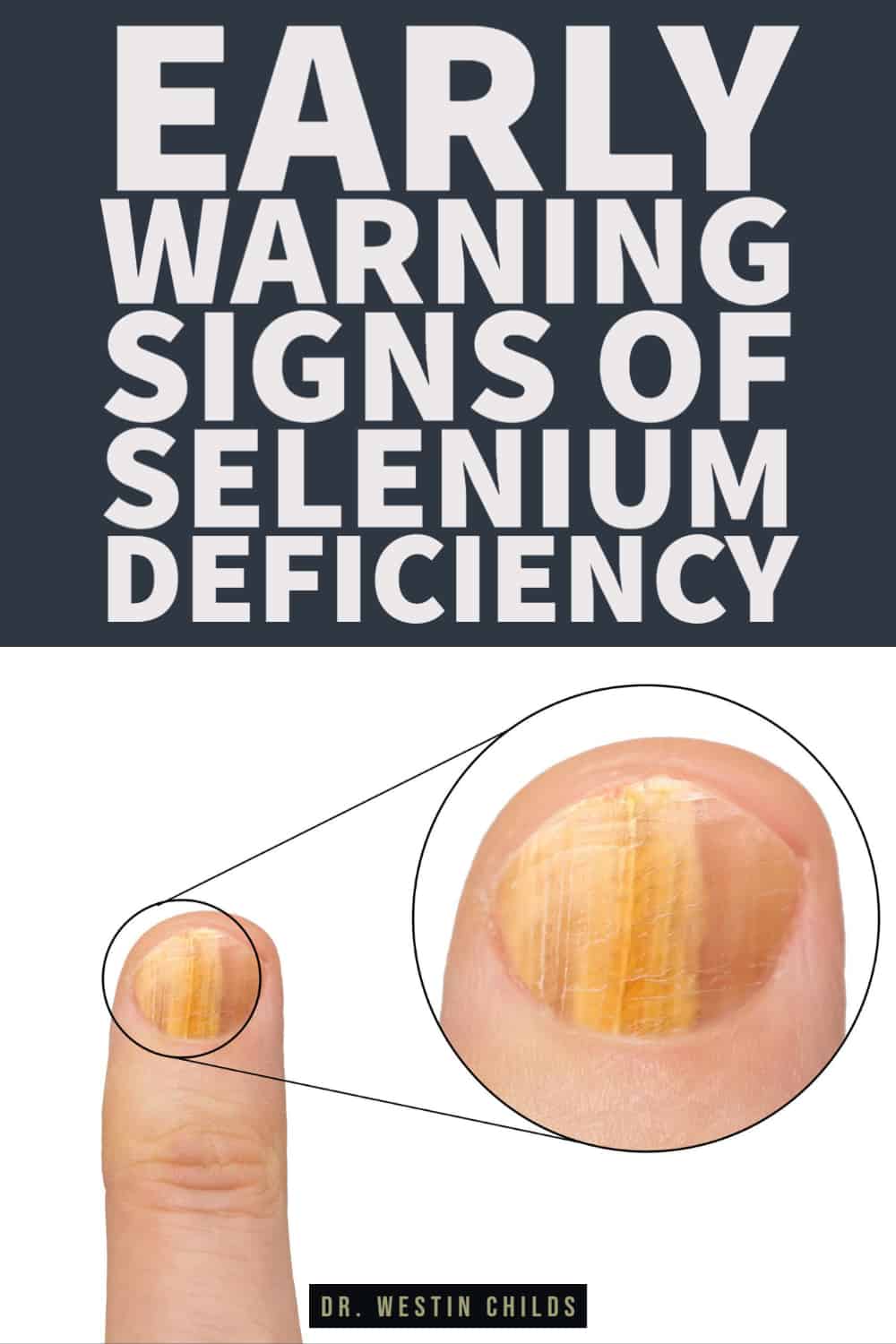
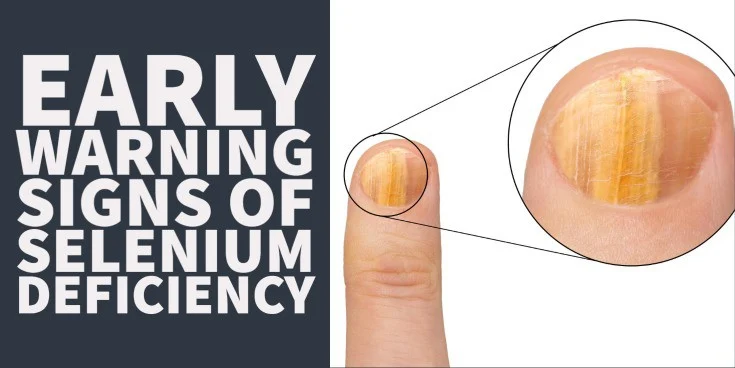
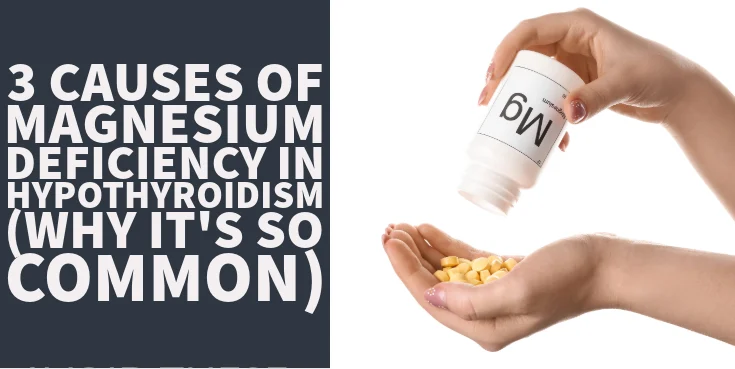
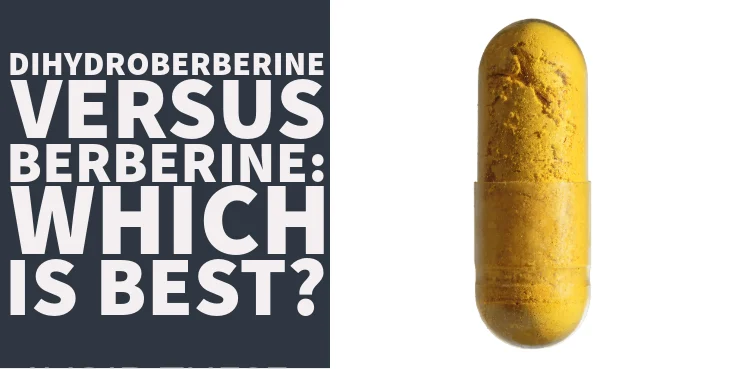
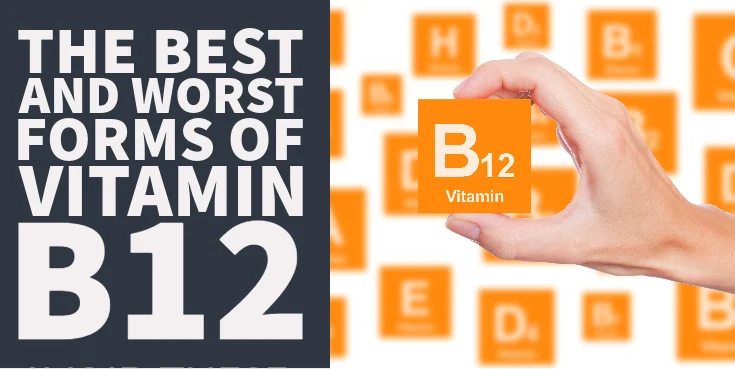
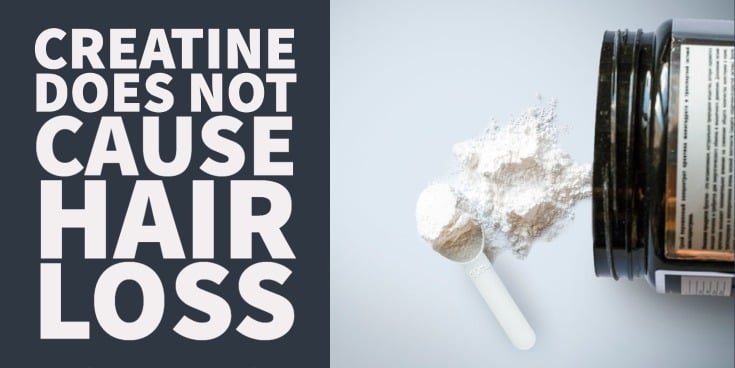
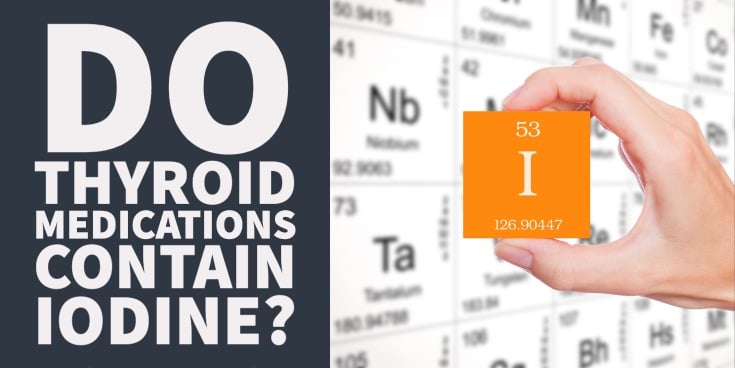
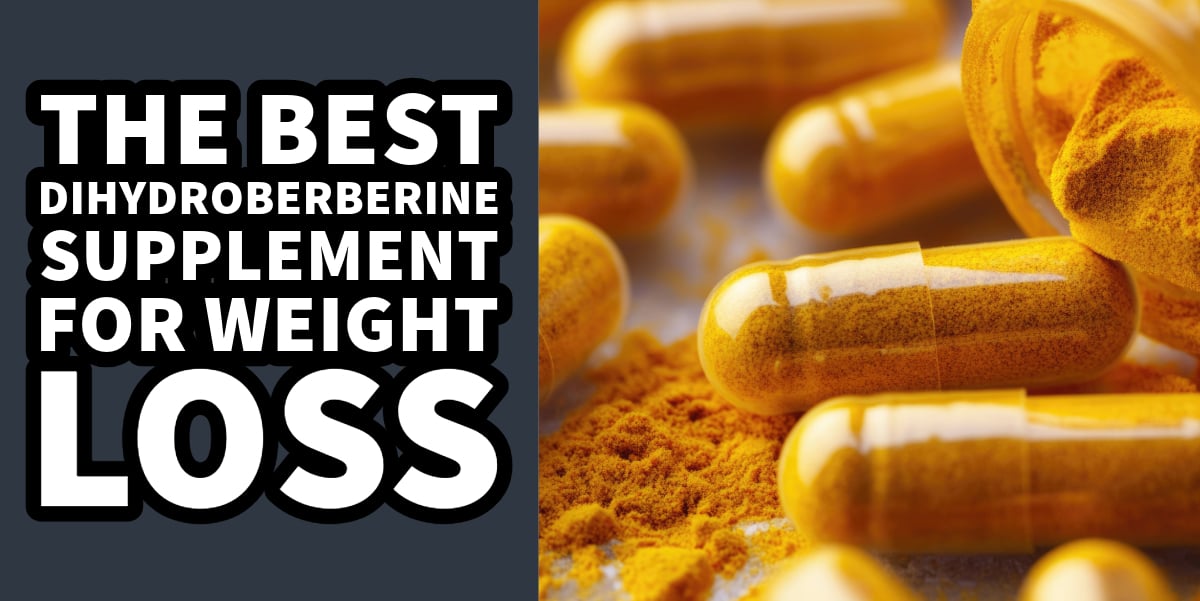

Hi, my name is Nazli and I am 55years old.I am reading your articles for some time.I am a thyroid patient for the last 20 years.Taking Euthyrox 150mg,it was managing well but for the last few months it is not stable my tsh is coming low.I am always animic and my ferritin is extremely low..I live in Dubai..please help.Thanks Nazli.
Hey Nazli,
You will need to find a local doctor who is able to order a complete thyroid panel and look at more than just your TSH. You may also benefit from hemoglobin electrophoresis and at least evaluation of your red cell indices.
Hello doktor Childs what do you recomend for me. My test are tsh 2.950..ft3 2.99..ft4 1.04..anty tpo 278.90..anty tg 477.80 my suplements; selenium cynk, magnesium, wit d3+k2 thank you you are the best..
Hey Gosia,
Unfortunately your lab tests are just a small part of your overall health. I couldn’t give you much in the way of advice with just this amount of information.
hi dr. child,
claire here again. i’m 39 years old. i was diagnosed with hyperthyroidism during my second pregnancy in 2003. my doctor treated me with PTU since that is the safest anti-thyroid med for pregnant women according to her.
things i observed. i have very soft nails. they tear easily. they are not brittle but are very soft. this make then very prone to bending off from my nail bed. the nail bed just bleeds with the nail still on top. this is really painful.
my hairloss is phenomenal. i refrain from combing my hair since the amount of hair loss really scares me.
observing this i decided to take calcium supplements. but the bad part is that i took it together with my anti-thyroid med. further research made me learn that calcium interferes with the absorption of certain thyroid meds. so now i take my calcium 4 hours before or after my thyroid meds.
having learned from my experience i would like to consult you when is the proper time to take selenium supplements? what are the things i have to be mindful of when i take them?
i think right now i’m 80 kilos (based on my last weigh in) and i’m just 5’4″.
thanks
Hey Claire,
It really depends on the person – I wouldn’t say there is necessarily a best time to take it.
Dr. Childs, I am currently taking 400mcg selenium daily aprox 1 m. My Dr only prescribes meds and knows nothing of supplements so relieing on him for advice is not a good plan. How do I know when to ease off the selenium? I am trying to get into remission but Dr is resistant to most testing (tsh only just started tpo).
Hey Cathy,
The best way is to follow your symptoms and lab tests. Supraphysiologic doses of selenium can help certain people but you won’t know until you try and test. It can be an iterative process.
When I took Armour, my fingernails were iron hard and grew like weeds. Now I am on t3 only and my nails peel and break and are thin like onion skin. What was in Armour that would make this kind of difference? I do take selenium every day.
I have been to many many MD even a muscle biopsy to get to the cause of my muscle pain and weakness. After 20 years and 2 weeks on selenium and 3 drops of iodine, my muscle pain is finally decreased!!!!
Hi Dory,
That’s great! It sounds like you are on the right track. Thanks for sharing and keep us updated on your progress.
Do u have hashimotos?
It has been a long road for me. Thyroidectomy 2009 from cancer. Started on T4 only. Changed Doctors to get T3. I was on 100 T4/5mg T3, and in normal range. Still didn’t feel my best and found a Dr. who would give me natural meds. I went through every natural thyroid med. My body had issues with absorbing too little, or too much. No matter how we changed the dose for each one. Armour thyroid, WP, NP, Nature throid, then….unithroid, tirosint, and more. I have so many in my drawer, I can’t even name them all. So now I am back on synthroid 100/cytomel 5mcg. Levels are normal again. I do feel ok, compared to the roller coaster of the natural meds. Trying to get this 30 lbs off. I will lose 1 to 1/2 a pound a week with diet and exercise. No matter which diet I do, whole food, calorie counting, ect. Then if I eat anything, I gain the 1 lb back, and possibly gain a few more. Last I checked, my blood work was normal (1 year ago), so I have to get it done again soon. I am in between a rock and a hard place. If I give in, I will continue to gain. I am 5′ tall 165 lbs (it took me months to lose 5 lbs). I work with autistic children, so I am very active. I am a hyper person. So I never sit still. Also, I know all the in’s and out’s of thyroid meds. When to take, how to take, what foods and supplements not to take withing so many hours. I have been reading up, researching, and constantly on a mission to find balance with my health. Going to try the 3 supplements recommended.
Thank you for writing this up in a thorough and understandable way! Since going plant-based years ago, I’ve supplemented the “usual” B12, D3, etc. but have unknowingly been consuming almost no selenium, and infrequent iodine along with with goitrogens without realizing it. I’ve been taking 200mcg selenium for the past few days and have had a marked difference in my energy levels. Started 250mcg iodine today after giving the selenium a tiny head start. Based on your article, I’ll see if working up to 325-400mcg for both would be better if my issues don’t resolve themselves in a month or so. Thank you for providing this info to everyone who needs it!
Hi Dr. Childs, I had small intestine cancer, bowel resection & chemo. I lost about 30 pounds during chemo. I’m only been able to regain 15/18 pounds back. A gastro doc said I have IBS-C. I know my bowels aren’t what they should be. I take Armour thyroid. I have no energy, hair falling out, etc. I’ve tried so many things to heal my bowels but to no avail! I live in Arizona. Can I come see you? Please! Thank you, Michele
Hi Michele,
I’m not seeing patients but if you are trying to regain some weight please see this article: https://www.restartmed.com/how-to-gain-weight-thyroid-problems/
Hi Doctor,
I have recently noticed my TSH is rising to 5.9, however, my T4 seems within range. 13.9. Similar to few others that have shared, I have developed some odd muscle pain that comes and goes on my arm and my left leg. Thanks to you, I have started taking supplement that contains Iodine, zinc and Selenium. I feel that the pain on my left leg is getting better and my arm completely gone. I’m hoping my Dr. will agree for a complete thyroid lab panel so I can better understand. Thanks again Doc!
Hi Brian,
Glad to help! It never hurts to use those types of supplements. I would also recommend checking your testosterone level when you check your thyroid as there is a strong connection between the two: https://www.restartmed.com/thyroid-symptoms-men/
Thanks so much for this article. Extremely helpful!!